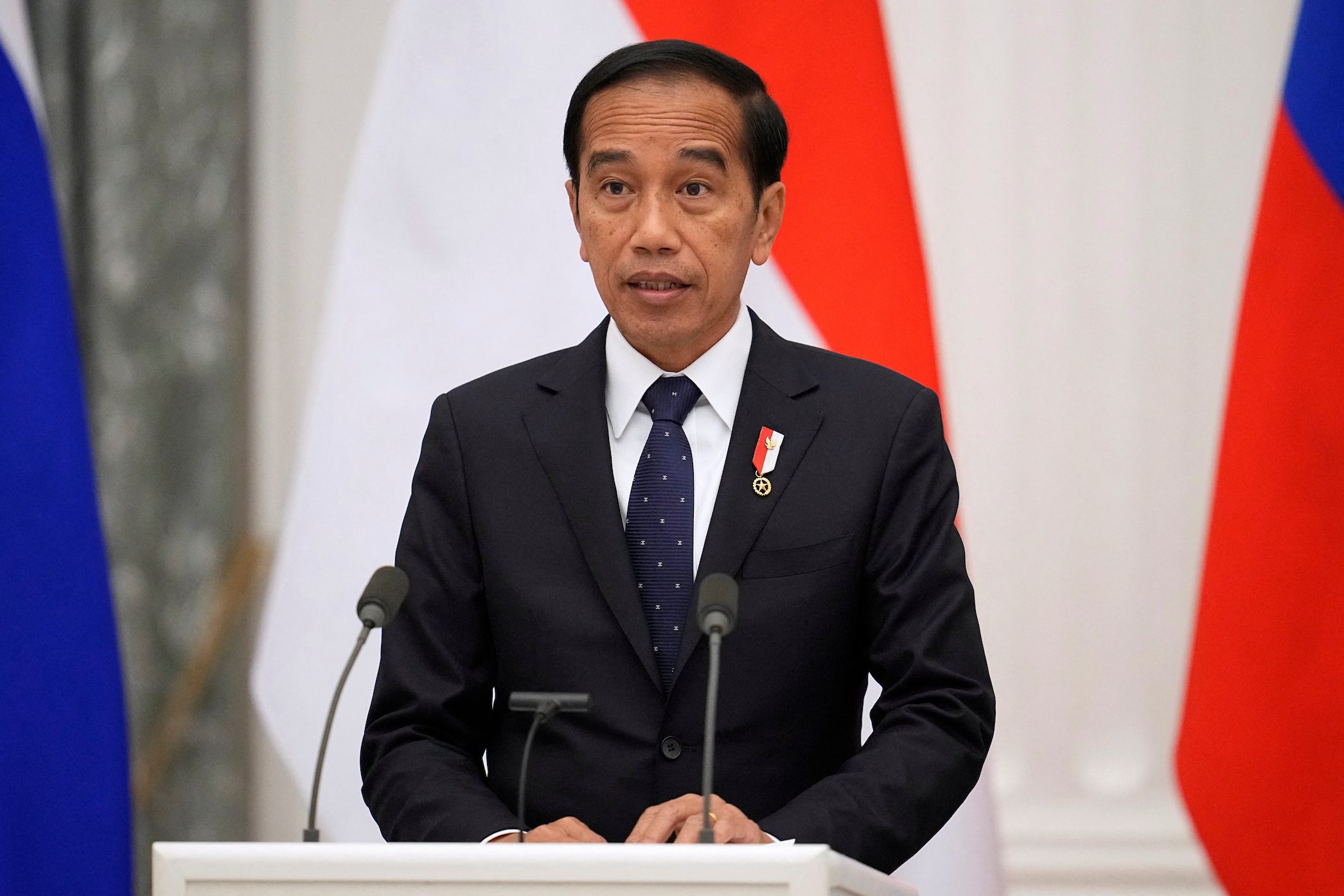SUMMARY
This is AI generated summarization, which may have errors. For context, always refer to the full article.

JAKARTA, Indonesia – Indonesia’s President Joko Widodo has signed an emergency regulation to replace a controversial job creation law, his ministers said on Friday, December 30, legislation that a court had ruled was flawed.
Some legal experts criticized the move as a government attempt to bypass proper debate in parliament, but chief economics minister Airlangga Hartarto said the regulation was to ensure legal certainty and achieve the government’s investment target amid global geopolitical uncertainty.
The Constitutional Court in 2021 ruled that the passage of the president’s vaunted Jobs Creation Law was flawed due to inadequate public consultations and ordered lawmakers to restart the process within two years. The law would otherwise be deemed unconstitutional.
Passed in 2020, Indonesia’s so-called “omnibus” law revised more than 70 other laws and was lauded by foreign investors for streamlining business rules in Southeast Asia’s largest economy, which is notorious for its onerous bureaucracy.
But it also sparked nationwide protests from workers, students and green groups, who said it eroded labour and environmental protections.
Noting the court’s ruling, Airlangga said, “Constitutionally, the emergency regulation will replace the Jobs Creation Law.”
Chief security minister Mahfud MD said the government opted for an emergency regulation because the routine procedure to comply with the ruling would take too long.
The government needed to decide “strategic measures” in anticipation of the impact of a global economic downturn and potential food crisis next year, he said.
Lawmakers told Reuters earlier this year they had planned to redo the deliberation of the legislation to comply.
Bivitri Susanti, a constitutional law expert from the Indonesia Jentera School of Law, criticized the move as “ridiculous” and “inappropriate” as it would reduce the time for proper debate in parliament.
“Everyone can see there is no emergency. It’s holiday time,” she said. “This emergency regulation is really a fait accompli from the president.”
An emergency regulation is usually effective immediately, but must receive parliament’s endorsement by the end of its next session to become permanent legislation.
Parliament is due to return from recess on January 10 for what is typically a four-month session.
Among the biggest controversies in the job creation law were relaxed rules on severance pay, changes to the minimum wage formula, contract labour and outsourcing, and a stipulation that environmental studies be only be required for high-risk investments.
The emergency regulation introduces some changes to that law to reflect trade unions’ demand, Airlangga said, including limiting outsourcing to certain sectors and adding a component for the formula used to set the minimum wage so that it would consider purchasing power.
He also stressed the government had conducted more public consultations about the law since the court ruling. – Rappler.com
Add a comment
How does this make you feel?
There are no comments yet. Add your comment to start the conversation.